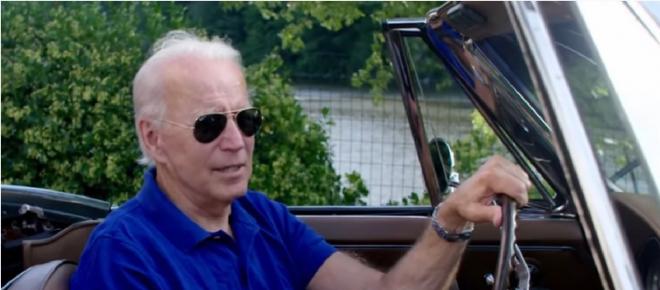Stories like this will become more common as millions of Americans receive vaccines from Pfizer-BioNTech and Moderna in the coming months. Over time, many of the vaccinated persons will still be infected with the new coronavirus.
Studies have shown that vaccines are about 95% effective, which means that some people who have been vaccinated are still infected.
It takes time to build up immunity, and two approved coronavirus vaccines require two doses several weeks apart to build up the body’s immune system. People can be exposed to the coronavirus immediately before or after vaccination and the body has no time to develop its defences.
Fault! The file name is not specified.
According to the Centers for Disease Control and Prevention, it usually takes a few weeks to develop immunity.
This means that, according to the CDC, someone may become infected shortly before or shortly after vaccination with the virus that causes Covid-19 and may still be ill.
The 95% efficacy of Covid 19 vaccines also suggests a waiting time. Modern Vaccine measures vaccine efficacy from 14 days after the second dose, while Pfizer measures vaccine efficacy from seven days after the second dose.
Vaccines may not offer perfect protection
Fault! The file name is not specified.
No vaccine is 100% effective and coronavirus vaccine manufacturers continue to test or protect vaccines against all infections or only those that cause symptoms.
The CDC estimates that 40% of coronavirus infections do not cause symptoms, and studies of the Moderna and Pfizer/BioNTech vaccines have only examined whether these vaccines prevent symptomatic infections.
In December, Moderna announced that it had submitted data to the U.S. Food and Drug Administration showing that its vaccine prevents 2/3 of all infections, including asymptomatic infections. The CDC currently recommends that individuals should not be presumed to be fully immune to infection after vaccination.
Overall, both vaccines offered about 95% protection in clinical trials, so a small number of people can still get the virus after two vaccinations. With more widespread use, this level of effectiveness may decrease as people with different levels of immune system response are vaccinated and then sent around the world.
Just because you got thevirus from the vaccine.
Current coronavirus vaccines cannot infect anyone with the virus. They don’t contain the virus.
Fault! The file name is not specified.
Instead, they carry a small piece of genetic material called messenger RNA, or mRNA. It tells the cells in the body to make a small piece of material that looks like part of the virus. These pieces are in turn recognized by the immune system as foreign intruders, and it begins to produce antibodies and immune cells that can recognize and neutralize the virus when the vaccinated person comes into contact with it.
None of the currently licensed and recommended COVID-19 vaccines being developed in the United States contain the live virus causing COVID-19. This means that, according to the CDC, the COVID-19 vaccine cannot infect you with COVID-19.
Immunity may decrease over time
No one knows how long vaccines can protect people from infection.
The new coronavirus has only been in existence for about a year and the final phase of vaccination trials was completed only a few weeks ago. Pfizer and Moderna followed subjects for at least two months after their second dose.
Fault! The file name is not specified.
The protection offered by vaccines may diminish over time and some vaccines require a second vaccination after a few years. For example, the CDC recommends that adults be vaccinated against tetanus every 10 years. According to the CDC, during measles or mumps outbreaks, some people may be advised to get an extra dose of MMR vaccine for extra protection.
It is also possible that the new coronavirus mutates, making the vaccines less effective. Flu virus strains are constantly changing, which is one of the reasons why people need a new flu shot every year.
Doctors hope the coronavirus won’t mutate like the flu. Однако, если это все же произойдет, технология, используемая для создания вакцин, будет легко адаптирована. Special featuresбновление вакцин вакцин Moderna и Pfizer займет гораздо меньше времени, чем создание новых против гриппа.
Другие могут быть небезопасны от вас
Медицинские работники д-ра Энтони Фаучи внизу предупреждают людей, что никто не может сбрасывать социального лица и потому, что они были вакцинированы.
Ошибка ! Имя файла не указано.
Это потому, что даже люди, которые сами невосприиимчивы к вирусу, могут заразиться и передать его другим. Он может расти в носу, говорит Фаучи, директор Национального института аллергии инфекционных заболеваний.
Возможно, кто-то может получить вакцину, но все равно может быть бессимптомным носителем, сказал медицинский аналитик CNN доктор Лина Вен, врач скорой помощи. У них могут не проявляться симптомы, но вирус у них есть в проходе, так что если они говорят, дышат, чихают и далее они они, они все могут передать его другим.
Учитывая эти вопросы без ответа, CDC говорит, что вакцинированные люди все равно должны использовать все доступные нам средства, чтобы остановить пандемию, в числе маску и находиться как минимум в 6 футах от том.
Элизабет Коэн и Фэй Чиу из CNN внесли свой вклад в этот репортаж.
Related Tags:




